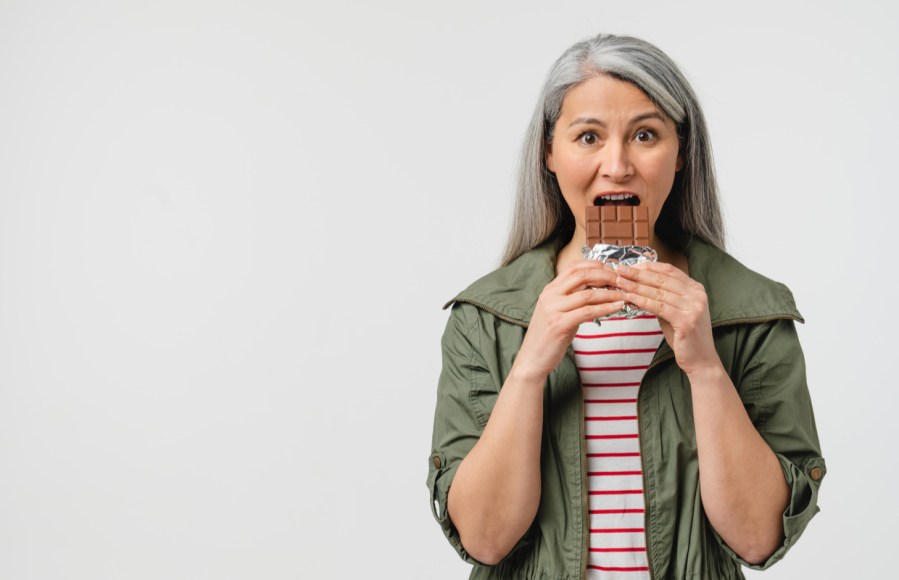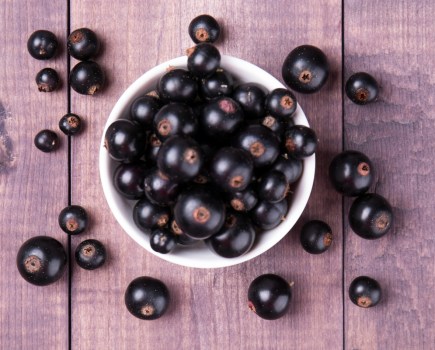Nutritionist, keto expert and author Pauline Cox, MSc, discusses the key symptoms and causes of sugar addiction, before sharing her top tips on how to beat cravings and optimise your blood sugar levels…
Do you find yourself nibbling one biscuit, which quickly turns into devouring the whole packet? Perhaps you tell yourself you’re quitting the sweet stuff for good, but yet end up chomping on chocolate two days later?
If you need more sugar to achieve the same blissful feeling that a few bites of a chocolate bar used to provide, or are having withdrawal effects when not eating sugary foods and so you continue to eat it despite negative physical or psychological consequences, you’re not alone.
For many people, sugar is like a bad relationship they keep going back to. It’s not healthy, yet they just can’t seem to stay away. Why is it that sugar can have such a hold over us, and is there really such a thing as sugar addiction?
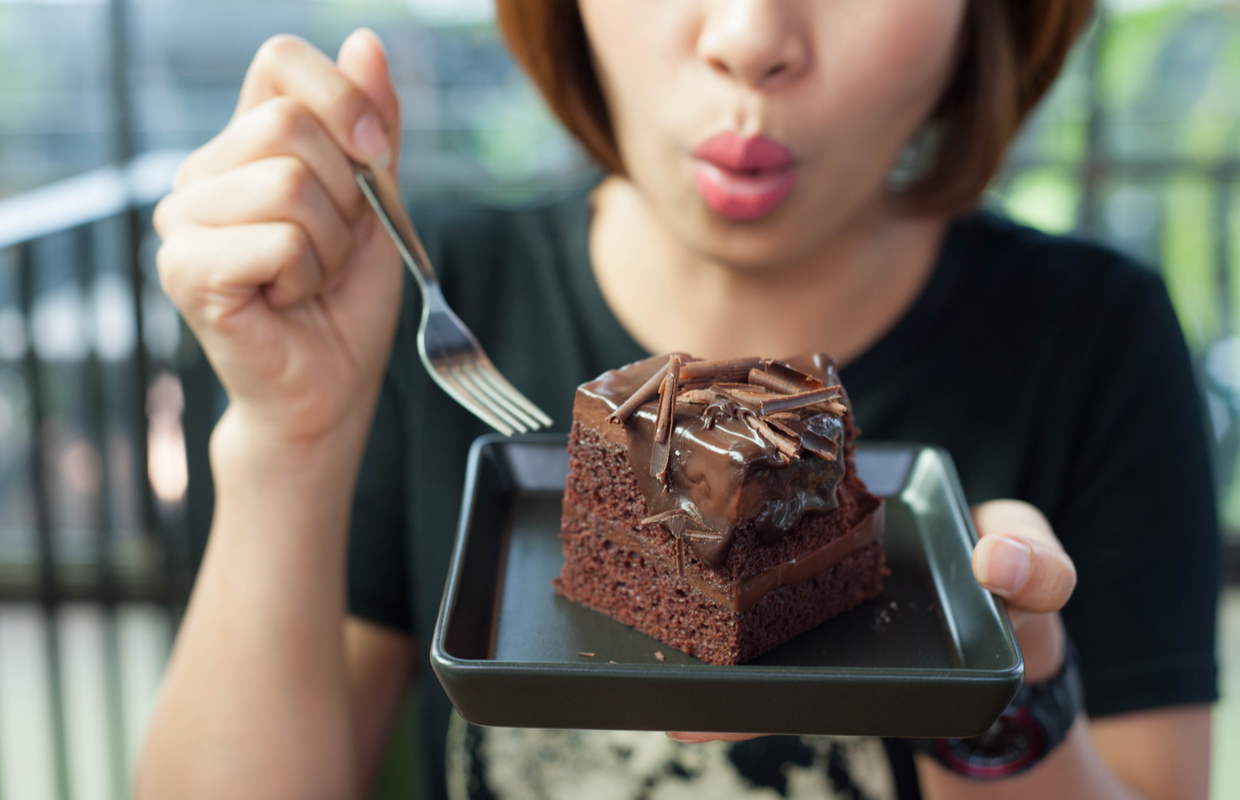
Sugar addiction: symptoms and causes
As humans, we are motivated by our potent brain chemistry to undertake certain behaviours that ensure our survival. Sex, drug taking and eating stimulate the release of a neurotransmitter, or brain hormone, called dopamine. Dopamine shapes behaviour through association: if something is pleasurable, your brain releases dopamine to motivate you to keep performing that same activity.
Low levels of oestrogen, folate and vitamins D and B6, as well as high levels of stress and inflammation, can lead to naturally low levels of dopamine. Therefore, dopamine-seeking behaviours such as compulsive eating may be driven by low levels of dopamine. Eating highly sugary foods leads to your dopamine levels spiking, quickly followed by a drop, driving you to eat more sugar to maintain the high. This is how a sugar addiction starts, and it can be hard to beat and overcome.
How sugar affects the brain
Although your brain accounts for just three per cent of your body weight, it demands a quarter of your energy use. And your sugar-hungry brain is hardwired to encourage you to seek and consume sugar whenever you get the chance. Getting sweet stuff into the body has a lot to do with taste as well as the impact that sweet food has on rising blood sugars.
When you crave something sweet, you are really craving the taste, while your body is craving the impact that sweet food will have on your blood sugar. You have sweet receptors that mean that when you ingest something sweet it sends a message to your brain saying ‘pay attention, this tastes good!’
The link between sugar and the gut
Preference for sweet foods is in part due to taste but also in part due to a subconscious conversation between the neurones in your gut and your brain. These neuropod cells in the gut respond to the presence of sugar by registering the presence of ‘sweet’ and send messages to the brain via the vagus nerve, triggering the release of dopamine.
So, anytime you eat something sweet, your gut is telling your brain to eat more of it! This is why food companies spend a great deal of money and science creating the perfect formula to stimulate your taste buds as well as this subconscious chit-chat between the gut and the brain. Hidden sugars in food, concealed within the flavour of salt – think pasta sauce, breads, crisps – is not an accident, it’s there for one reason only – to get you addicted. Again, this doesn’t help when trying to learn how to beat a sugar addiction.
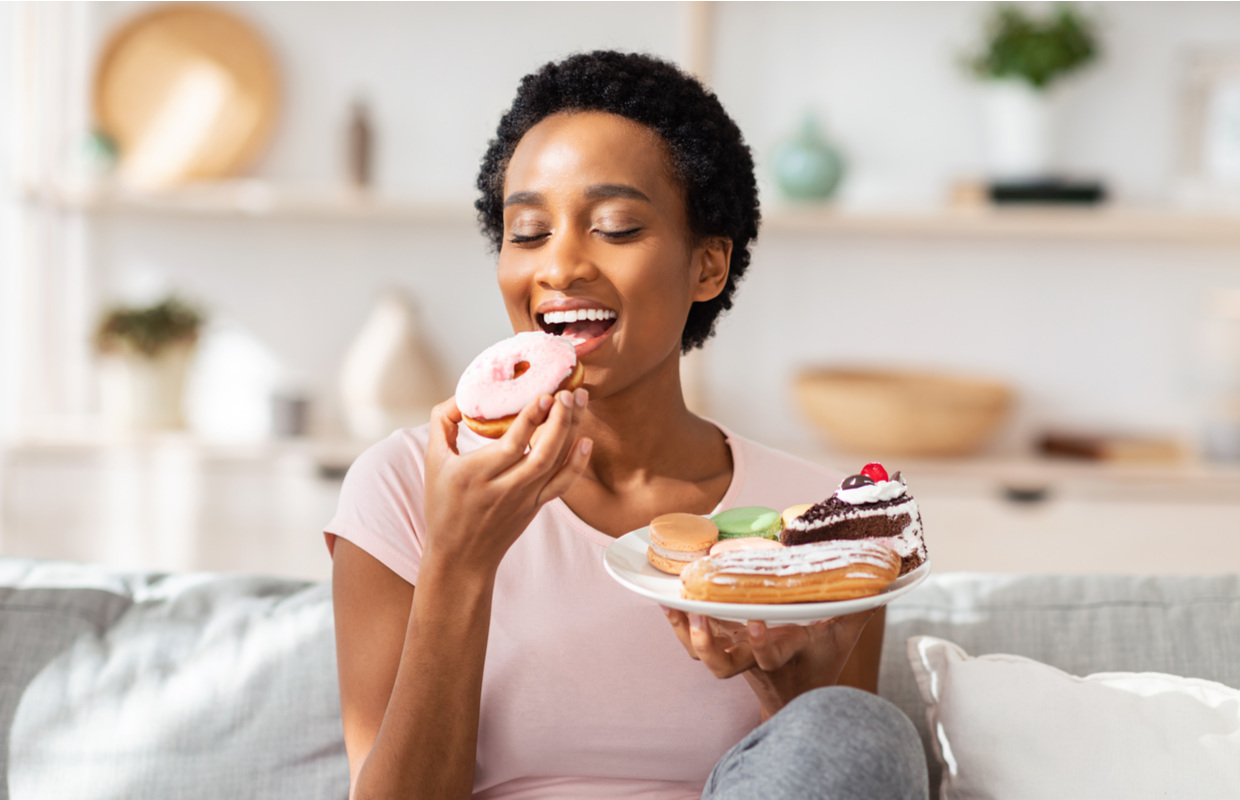
Sugar addiction and insulin resistance
Going back to your brain cells, these are susceptible to insulin resistance, which is where insulin, the hormone that regulates your blood sugar, can no longer do its job as well. When you eat something, insulin is crucial for transporting glucose from your blood into your brain cells and other cells.
Insulin unlocks the cell door to allow glucose to pass into the cell, however, high-sugar consumption over a long period of time results in insulin no longer being able to open the door as well. Imagine the door becoming heavy and difficult to open, with more and more insulin needed to usher the glucose into the cell.
A very important area of the brain, the hypothalamus, is responsible for hunger and appetite. If the hypothalamus becomes insulin resistant, you can lose your sense of feeling full, and hunger becomes prolonged, driving you to want to eat more to satisfy your brain’s need for glucose.
How to beat a sugar addiction: 5 simple tips
Cut out obvious sugar sources
Foods that cause a sharp rise in blood sugars and dopamine makes them far more addictive. Managing your blood sugar spikes can help to reduce the impact sugar has on your body, which is key for better brain function and appetite regulation. So, avoid things like biscuits and sweets when learning how to beat a sugar addiction, as these will create massive sugar spikes.
Eat sugar with fibre
Eating fibre alongside foods with a higher-glycaemic index (sugar load), will lower the impact on your blood sugars. A large salad with your pizza reduces the blood sugar spike from the pizza. Eating your dessert after a fibre-packed lunch will lower the blood-sugar impact of the dessert.
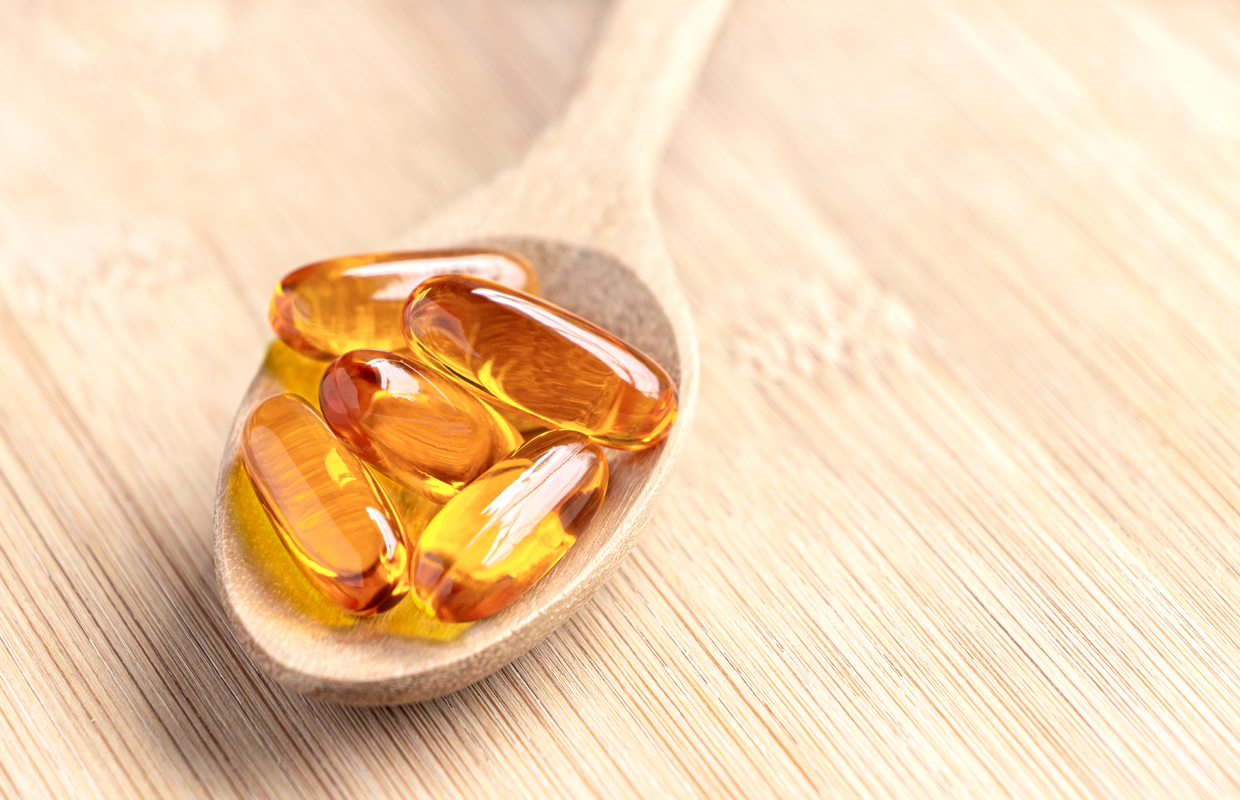
Take omega-3
Sugar-sensing neuropod cells in the gut also respond to essential fatty acids. Omega-3 supplementation can release dopamine via these neuropods, helping to reduce sugar cravings. This can be achieved with EPA fatty acids in supplements containing fish oil. Or if you’re vegan, try the UK-grown oil seed, ahiflower.
Increase amino acids
Doing so can help reduce cravings through gently stimulating dopamine. Easy-to-absorb protein powders, collagen peptides or food-source protein can help lower sugar cravings. Try adding collagen to smoothies, or mixing into porridge to reduce the carb load.
Prioritise sleep
The quality and length of sleep impacts our sugar cravings. An increase of 15 percent in hunger hormone and a reduction of 15 per cent in satiety hormone occurs when you have poor sleep. Aim for seven hours of good-quality sleep to help reduce cravings and overeating.
Learn more about quitting sugar in Primal Living in a Modern World, by Pauline Cox. Use the code TopSante10 for a £10 discount at sowandarrow.com. And linkup with others at Pauline’s free Facebook group – Healthy Keto & Low-Carb Living.
Related: How strength training affects your blood sugar levels

